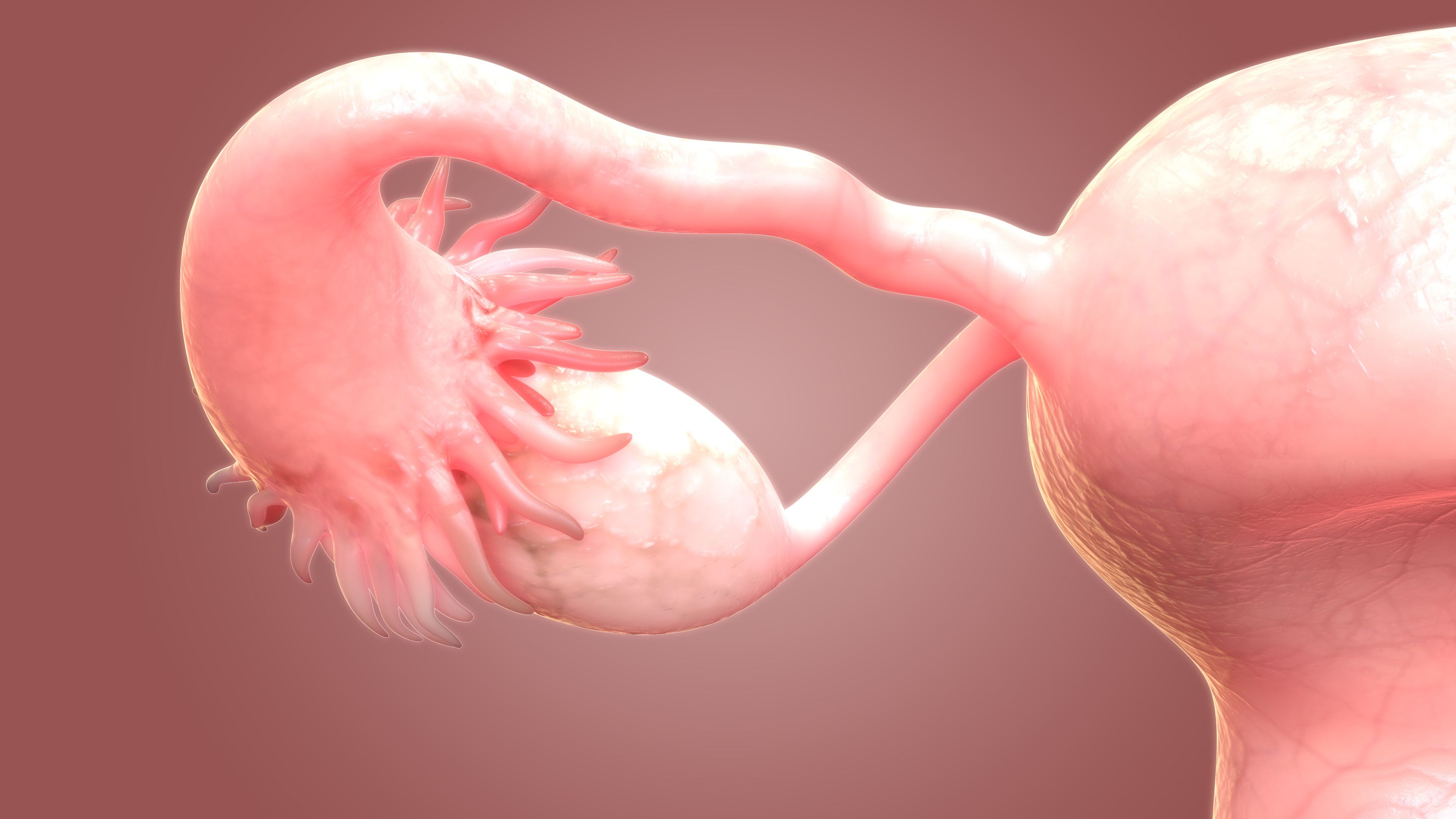Upifitamab Rilsodotin Does Not Improve Responses in Ovarian Cancer
The safety profile of upifitamab rilsodotin in the phase 1b/2 UPLIFT trial is consistent with prior reports of the agent in those with platinum-resistant ovarian cancer.
The single-arm phase 1b/2 UPLIFT trial included a total of 268 enrolled patients who had undergone 1 to 4 prior treatment regimens. These patients had undergone a median of 3 prior lines of systemic therapy, and 31% of the population had received 4 previous lines of therapy.

Upifitamab rilsodotin (XMT-1536), an antibody-drug conjugate targeting the sodium-dependent phosphate transport protein NaPi2b, missed the primary end point—objective response rate (ORR)—of the phase 1b/2 UPLIFT trial (NCT03319628) in patients with platinum-resistant ovarian cancer, according to a press release from Mersana Therapeutics.
In the NaPi2b-positive population, the experimental agent yielded an ORR of 15.6% (95% CI, 10.0%-22.7%) according to investigator assessment; this consisted of 20 partial responses (PRs; 14.2%) and 2 complete responses (CRs; 1.4%). According to independent radiology review (IRR), the ORR was 16.3% (95% CI, 10.6%-23.5%); PRs occurred in 16 patients (11.3%), and CRs occurred in 7 (5.0%). The median duration of response (DOR) was not reached according to IRR assessment and 7.4 months according to investigators.
In the overall population, the investigator- and IRR-assessed ORRs were both 13.1%. PRs occurred in 32 patients (11.9%) according to investigators and in 24 patients (9.0%) according to IRR assessment. CRs occurred in 3 (1.1%) and 11 (4.1%) patients according to each respective assessment method. The investigator-assessed median DOR was 7.4 months, and the corresponding IRR-assessed figure was 10.7 months.
The safety profile was consistent with prior data. Detailed findings are planned for release in an “appropriate forum,” according to the press release.
“We are deeply disappointed that [the] UPLIFT [trial’s] efficacy failed to replicate previous data from approximately 100 patients in the dose expansion portion of our phase 1b clinical trial,” Arvin Yang, MD, PhD, senior vice president and chief medical officer at Mersana Therapeutics, said in the press release. “While the [DOR] was longer than that from the dose expansion portion of upifitamab rilsodotin’s phase 1b clinical trial, the lower bound of the confidence interval for the primary end point did not meet our goal of excluding a 12% ORR seen with standard-of-care, single-agent chemotherapy.
“We are in the process of conducting an in-depth analysis of various factors to better understand the results as well as the characteristics of patients who responded to upifitamab rilsodotin therapy, particularly those whose responses were deep and durable. We extend our deepest gratitude to all of the patients, family members, caregivers and investigators who contributed to [the UPLIFT trial].”
The single-arm UPLIFT trial included a total of 268 enrolled patients who had undergone 1 to 4 prior treatment regimens. These patients had undergone a median of 3 prior lines of systemic therapy, and 31% of the population had received 4 previous lines of therapy. In total, 69% had received a previous PARP inhibitor, and 84% of patients had received prior therapy with bevacizumab (Avastin).
Of the overall population, 141 patients were NaPi2b-positive, which was defined by a tumor proportion score of 75% or greater. The primary end point was investigator-assessed ORR in the NaPi2b-positive subgroup. Secondary end points for the trial included investigator-assessed ORR in the overall population, DOR, and safety.
Patients received upifitamab rilsodotin once every 28 days until disease progression or unacceptable toxicity.
Some of the inclusion criteria for this trial were an ECOG performance status of 0 or 1 and resolution of any acute toxicities to grade 1 or lower prior to study treatment. Select exclusion criteria included having any untreated central nervous system metastases, any history of leptomeningeal metastasis or carcinomatous meningitis, and any prior history of liver disease.
References
Mersana Therapeutics announces topline data from UPLIFT clinical trial in patients with platinum-resistant ovarian cancer and strategic reprioritization. News Release. Mersana Therapeutics, Inc. July 27, 2023. Accessed July 28, 2023. https://yhoo.it/3QikgxF
Late Hepatic Recurrence From Granulosa Cell Tumor: A Case Report
Granulosa cell tumors exhibit late recurrence and rare hepatic metastasis, emphasizing the need for lifelong surveillance in affected patients.